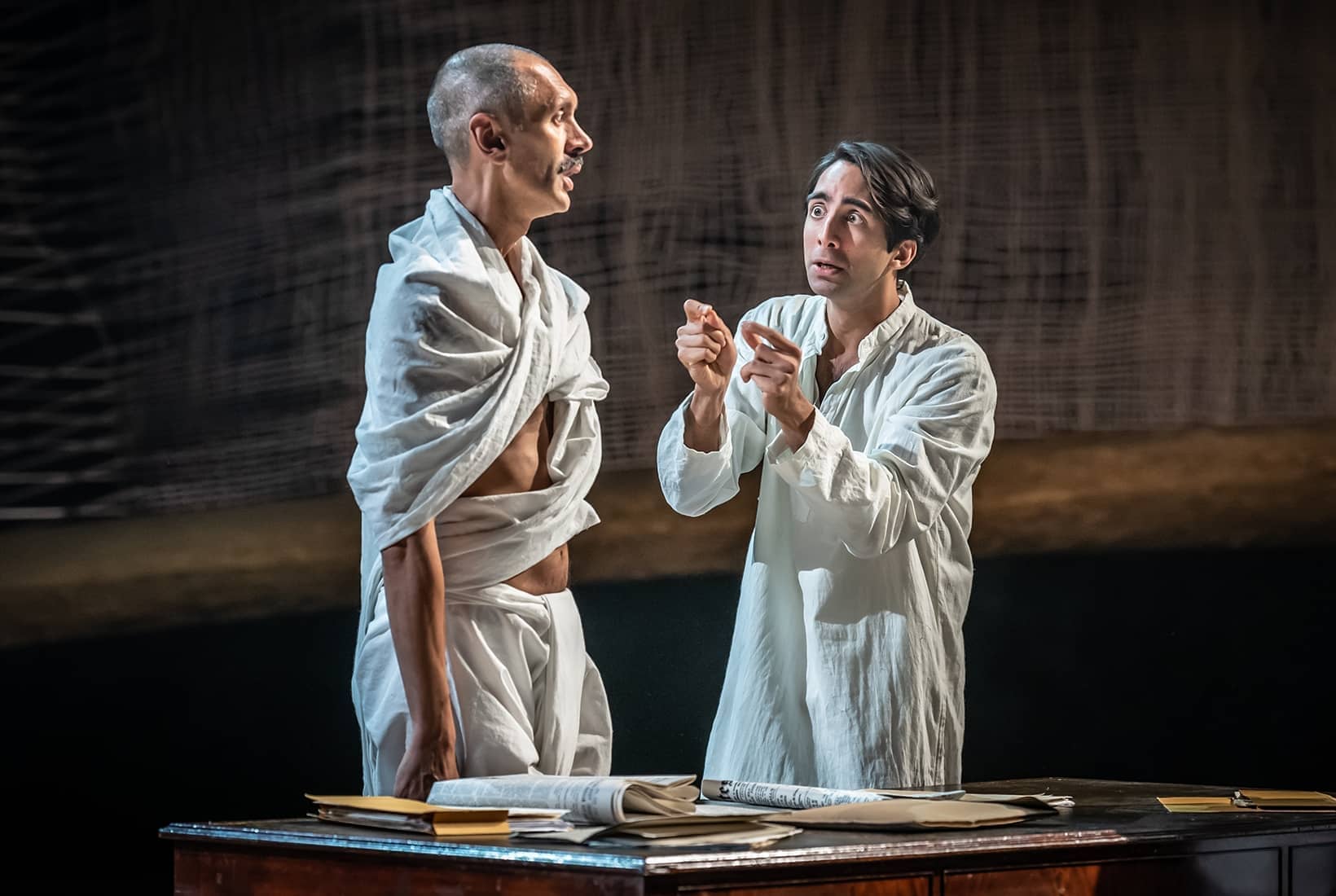Dictating to the Estate is a piece of community theatre that explains why Grenfell Tower went up in flames on 14 June 2017. The abandoned block stands, like a cenotaph, a few minutes’ walk from the social club where the show is presented.
The local council never cared much for Grenfell’s 120 families. Plans to destroy the tower and expand the estate – with higher rents, of course – had long been under discussion. A one-bedroom flat in west London goes for half a million pounds so there were profits galore to be made. ‘A gold mine for the council,’ said one developer, ‘and they don’t even have to dig for gold.’ The block was administered by a TMO, or ‘tenant management organisation’, whose staff were as arrogant as Napoleon and as intelligent as the Tellytubbies. They bullied the residents over matters unrelated to fire safety. New boilers were installed and the TMO insisted that they be sited in hallways, not in kitchens. Residents who objected were threatened with eviction. When the occupants formed a fight-back committee, the TMO complained of ‘defamation and harassment’ and consulted their lawyers. Two Grenfell residents whom the council had threatened with legal action died in the fire.
Everyone who works in local government should see this show. They probably won’t though
The cause of the blaze itself is usually ascribed to a wonky fridge-freezer. Which sounds a bit odd. How could an ice-cooler burst into flames and torch a skyscraper? The truth is that electrical surges were commonplace. ‘My computer literally exploded,’ said one resident. The investigation into the dodgy wiring reaches to the heart of the disaster: dilution of responsibility.
Too many bodies were entangled in overlapping webs of authority. An investigation into the electrical surges was conducted by fire experts but they didn’t publish the report. That was the job of the council, which had an interest in withholding certain information. Two pages of evidence never saw the light of day. The additional failures reveal an astonishing level of folly and ineptitude. There were no sprinklers. The residents were unaware of the evacuation procedure. The older fire extinguishers had the word ‘CONDEMNED’ stencilled across them. The only escape route was a single staircase with no natural light. And in the event of a fire, the official advice was to ‘stay put’. The deadly cladding itself, chosen because it was cheaper, was almost an afterthought.
The fire happened because a lethal disdain for the poor had crept into the minds of the council and its satellites. No one knew who was in charge because no one cared. In April 2017, a similar fire at a block in Hammersmith prompted residents to seek reassurances from the council. ‘We do not have a block with external cladding of this nature,’ came the reply. Whoever wrote that might have prevented the fire by doing two minutes’ research but they didn’t bother because they assumed it was someone else’s job. Everyone who works in local government should see this show. They probably won’t though. It’s not their responsibility.
The National is running a YouTube ad campaign for The Father and the Assassin, which successfully highlights the show’s least attractive feature. The stagy presentation makes it look like a municipal pageant or a float at a carnival. Never mind. It’s worth a visit. The play examines the unsavoury personality of Nathuram Godse, who began as a follower of Gandhi and ended up slaying his hero because he failed to resist India’s partition. The show opens with Godse promising that anyone who hears his story will take his side against the Mahatma. And he jokingly claims that he did Gandhi a service by martyring him: ‘Would you rather he died of incontinence?’ Shubham Saraf, a hugely charismatic performer, brings levity and an impish quirkiness to the role of the smirking killer. A very unlikely hero.
The play sets out to correct a number of historical inaccuracies. Britain’s seizure of India is often portrayed as a ruthless, predatory conquest. A Hindu commentator disagrees. ‘How did they take over? Because we bloody let them.’ The disunity of the natives was at least as significant as Britain’s military might. The partition, in 1947, which led to colossal loss of life, is often cited as proof of Britain’s genocidal arrogance. But carving India into pieces wasn’t some idle British whim. It was a solution suggested by Hindu and Muslim leaders who predicted that religious coexistence would be impossible. A Hindu activist explains that Muslims born and raised outside the Middle East are bound to foment civil disorder because their loyalties are divided between their homeland and their holy land.
It’s rare to hear Muslims attacked like this in a subsidised theatre. Gandhi (Paul Bazely) comes across as a chilly, doctrinaire fanatic and this harsh portrait enables the show to deliver on its promise. The slayer is more loveable than the victim.








Comments